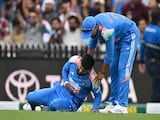- Eat a healthy diet to avoid fluctuations in blood sugar levels
- Drink enough water throughout the day
- Enjoy the festival with natural colours
During Holi, indulgence in Gujias, kachoris and other festive delicacies is a must. While overindulgence in festive food is not recommended for anyone, it is especially crucial for people with diabetes to be mindful of what they eat during this period. With an estimated 8.7% diabetic population in the age group of 20 and 70 years, diabetes is a growing challenge in India. This is strongly led by sedentary lifestyle and unhealthy food especially in the festive seasons. Any person with diabetes needs to take extra steps during this time of the year to ensure their blood-glucose levels are in check. Further, the ongoing pandemic also brings reason to ensure controlled glucose levels as people with diabetes are more likely to have complications from Covid-19. Here are some simple steps to you should definitely take in account this Holi.
Tips for diabetics
1. Practice moderation: Stick to a balanced diet and a defined calorie intake of around 2000 calories/day. This doesn't mean you need to completely avoid your desire to enjoy special Holi dishes like Gujiya or pakoras but exercise control and stick to a spoonful bite.
2. Use sugar alternatives: Try making your own sweets at home so that you can control the carbohydrates, oil and sugar that goes in preparing them. Use skimmed milk instead of full fatted milk, and natural sweeteners like jaggery over sugar or other artificial sweeteners. You can also add dates, raisins, figs (anjeer) or fruits to sweeten your desert. Also, do not forget to share your sweets with others, to avoid stocking them and having later yourself.
Also read: Diabetes And Oral Health: Uncontrolled Blood Sugar Levels Can Lead To These Many Dental Issues
3. Slow intake: Eat slowly as it helps the brain to register the food. A few bites of the food will give you a taste of the festive indulgence without adding extra calories. Further, eating and chewing slowly aids better digestion which can help lead to fewer digestive problems.
Chew your food properly for better digestion
Photo Credit: iStock
4. Use herbal colours only: Contact with harsh chemicals in the Holi colours can cause damage to the skin and contribute towards skin infections. People with diabetes are more susceptible to skin infection when their blood-glucose levels are not in control. Hence, as a precaution - bid goodbye to the chemically laced colours and opt for natural or herbal colours only.
5. Be smart about your carbs: People with diabetes should avoid carb intake as much as possible, as it has significant impact on blood sugar. Limit your refined and processed carbohydrate intakes, and replace it with proteins like fish, chicken or soy. Choose healthy oils like olive oil and canola oil to prepare your meals and snacks. They are rich in Omega-3, monounsaturated fats (MUFA) and polyunsaturated fats (PUFA), which helps in bringing better control over your blood sugar level. In addition, add fiber-rich whole foods, like apples, carrots, beans, cashews, and other low glycemic index foods to you daily meals. Eat protein rich food items with each meal such as dal, paneer, curds or buttermilk and salads which helps to reduce sugar craving.
Also read: Diabetes Diet: Try This Refreshing Drink To Control Blood Sugar Levels Effectively
6. Drink fluids: Make sure to drink at least 3 to 4 litres of water to keep yourself hydrated in-between enjoying all the festivities. It will also help in cleansing the gut and will give you a feeling of fullness, so you will eat less junk food. You can also switch to natural beverages like coconut water, lemonade or milk for refreshment.
Drink enough amount of water throughout the day
Photo Credit: iStock
7. Avoid or moderate alcohol intake: It can be difficult to completely avoid consumption of alcohol. However, it is important to moderate the intake of the same. While moderate amounts of alcohol may cause blood sugar to rise, excess alcohol can actually decrease your blood sugar level. Alcohol gives a sudden rush of energy, or 'empty calories' which may lead to an episode of hypoglycemia. So, try to avoid alcohol as much as possible.
8. Ensuring correct dosage of Insulin: More often than not, individuals consume the same amount of Insulin as a normal day - even after they consume a large meal. When the consumption of carbohydrates increases, or there is variation in exercise, sleep or intake of alcohol, it becomes important to consult with your doctor or diabetes educator to change the insulin regimen.
Also read: Diabetes Diet: Can Diabetics Replace Sugar With Honey?
9. Compensate with physical activity: Whether it's a normal day or a day of festivities, physical activity is of utmost importance. Especially if you're a diabetic, being active makes your body more sensitive to insulin, which helps manage your diabetes. Keep your body active and compensate for the extra calories consumed.
Maintaining discipline and following a routine is indispensable in effective diabetes management. So, it is best to always try to plan ahead and get things sorted beforehand to allow yourself enough time amidst the preparations to do your regular exercises, take your medicines on time and have three major meals a day. It is necessary to stick your daily exercise routine even during the festive celebrations.
(Dr. Mudit Sabharwal, Consultant Diabetologist and Head - Medical Affairs, BeatO)
Disclaimer: The opinions expressed within this article are the personal opinions of the author. NDTV is not responsible for the accuracy, completeness, suitability, or validity of any information on this article. All information is provided on an as-is basis. The information, facts or opinions appearing in the article do not reflect the views of NDTV and NDTV does not assume any responsibility or liability for the same.















